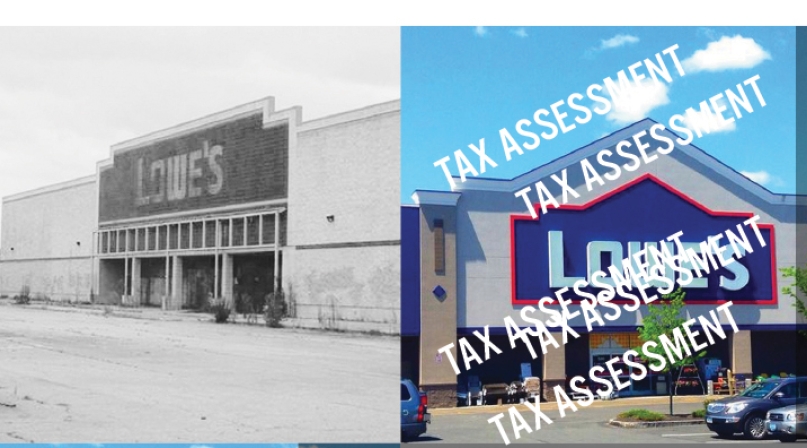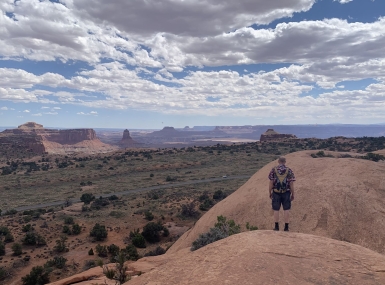Counties fighting ‘dark store’ math by big box retailers

Counties in Michigan, Wisconsin, Indiana and Texas are trying to properly assess big box stores
After striking out in the state Senate last year, Michigan counties are once again trying to get legislation passed that would level the playing field when it comes to how they assess big box store properties.
Large chain stores such as Lowe’s, Home Depot and Target have challenged their property tax assessments — and won — resulting in huge losses to counties in Michigan, and the practice appears to be spreading to other states including Indiana, Kansas, New Hampshire, New York, Texas and Wisconsin.
When the big box stores win, counties lose. In Michigan, it’s to the tune of $100 million in lost property tax revenue since 2013, according to the Michigan Association of County Treasurers.
“Our fear is, where does this end?” said Marquette County, Mich. Administrator Scott Erbisch. “They’re shifting the buck to Mom ’n Pop businesses and residents.”
While still doing business, the stores argue their properties are worth much less, the same as a vacant “dark store.” The stores, they argue, are not as valuable because of deed restrictions that they placed on the properties themselves so competitors can’t locate there.
Unveiling his bill at a Michigan Municipal League meeting earlier this spring, state Rep. David Maturen, a real estate appraiser and former county board chair and commissioner in Kalamazoo County, gave examples of the practice and how it is hurting local communities.
In Kalamazoo County, he said, Costco spent $17.5 million to open a new store but argued it was only worth $4 million.
“Multiply $100,000 times every big-box store in this state and all of a sudden there’s some major money out there…that should be going to police and fire and schools, and every other service that’s provided,” he said.
Maturen’s bill would require the Michigan Tax Tribunal — when it hears challenges to local property tax assessments — to apply “standard appraisal procedures when reaching their findings of facts and conclusions of law in larger property tax cases.” A similar bill passed the Michigan House last year 97–11 but never made it out of a Senate committee for a vote.
The proposed legislation is facing steep opposition from the Michigan Chamber of Commerce, which said that it is strongly opposed to “legislation being pushed by local government tax collectors to rig the assessment and appeals system against taxpayers and in favor of local governments.”
But a smaller group of chambers, the Northern Michigan Chamber Alliance, is supporting the legislation. The bill is awaiting a hearing in the House Tax Policy Committee.
Indiana Awaits Legislative Fix
Two years ago, counties in Indiana were successful in helping get legislation passed that restricts “dark store” math, but stores have challenged the measures. Elkhart County recently refunded $3.1 million to three retailers, after those companies won appeals with the Indiana Board of Tax Review.
Last month, the Indiana Supreme Court dealt a major blow to counties when it refused to hear a case involving Howard County and Kohl’s department store.
That means a previous state tax court ruling stands, in favor of Kohl’s.
“We had to refund about $219,000 to Kohl’s,” said Howard County Assessor Mindy Heady. The county spent about $175,000 fighting the case. “It makes our job hard. We’re just trying to be fair and equitable,” she said.
Pending appeals in counties across the state include several CVS stores, Lowe’s, and other retailers.
But counties are holding their powder. A revision they hope has put more teeth into the law will likely be tested soon, according to David Bottorff, executive director, Association of Indiana Counties.
Bottorff said a revised rule expected from the state Department of Local Government Finance deals with market segmentation and is designed to focus interpretation of assessments. It says that a property must be compared to similar properties.
Lawyers for big box stores and other retail chains have been comparing up-and-running properties with run-down abandoned stores.
Bottorf hopes this tweak to the regulations will lead to a win for counties in one of the challenges working their way through the state.
Wisconsin Fighting Back
The Wisconsin Counties Association is urging counties to pass a resolution supporting proposed legislation to prevent “a significant tax shift from commercial to residential property tax payers.”
Earlier this month, state lawmakers unveiled their proposals, which said “vacant dark stores cannot be compared to open stores,” and that assessors must use comparable properties with regard to age, location, design and condition.
A Win for Bexar County, Texas
Earlier this year, a Bexar County arbitration panel sided with the county when it rejected Lowe’s attempt to value some of their stores in the county as if they were empty. “Texas law does not support the notion that appraisal of the subject properties should be conducted as if they were vacant,” the panel wrote.
The company is suing Bexar County to try to cut its property bill in half for 10 of its stores in the area. The non-binding decision by the arbitration panel, which looked at the value of four of the 10 stores, means Lowes can still challenge Bexar County in court. The county, which spent $300,000 on legal fees, has estimated a loss of $850 million in property tax revenue for 2015 and 2016 tax years.
Dallas, Harrison and Williamson counties in Texas have all settled with big box retailers, a common practice for local governments fighting this issue, so they don’t rack up high legal fees.
Wide acceptance of the dark stores math in Texas could mean a loss of $3.3 billion a year within five years to local governments, according to Glenn Hegar, Texas comptroller of public accounts. “When the burden is shifted to homeowners,” he wrote in a recent op-ed, “it will amount to an increase of $311 annually for every home in Texas.”
Attachments
Related News

ERC fellows demonstrate value of relationships in economic development
Traditional economic development schools of thought do not typically recognize relationships as assets that a community can use to further their economic development agenda, but Economic Recovery Corps fellows feel otherwise.

Congress Passes Landmark Outdoor Recreation Package
Lawmakers passed the bipartisan EXPLORE Act (H.R.6492) on December 19 to boost outdoor recreation opportunities on public lands for county residents and visitors and aid gateway communities

